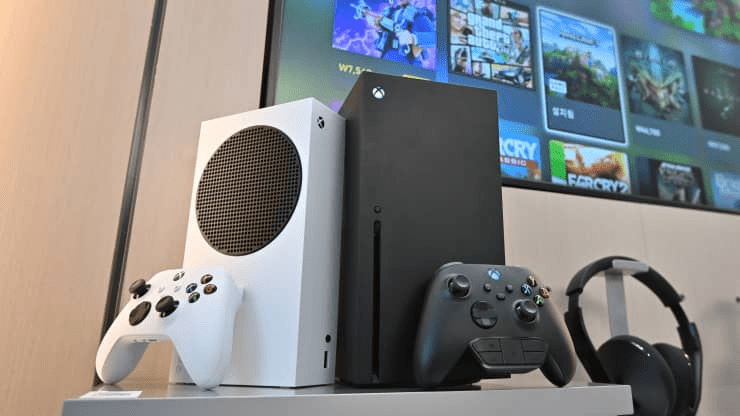We’ve come a long way from the arcades of the 80s. Today, the way more than 700 million people play video games is on a dedicated console, with the console industry on track to generate $45 billion in revenue this year, according to market research firm Newzoo. And the way companies in the sector make money has changed rapidly over the years.

Now, with new consoles from Microsoft and Sony on sale, there’s a clear push from both companies deeper into software and subscriptions — similar to the way Apple has placed a greater emphasis on services in recent years. They’re hoping to capitalize on rising demand for games as consumers around the world spend more time at home during the coronavirus pandemic. But a viral pandemic isn’t the only thing that’s changed the gaming industry recently.
According to Daniel Ahmad, analyst at Niko Partners, consoles are now a much more profitable business for firms like Microsoft, Sony and Nintendo than they were a decade or two ago. Digital distribution of games has allowed firms to rake in bigger profit margins than selling physical copies in stores, Ahmad said. Whereas publishers would traditionally make about $35 on a $60 game sold in-store, online downloads mean they can now make as much as $45 per game.
Sony and Nintendo have reported much higher digital download numbers this year. That trend looks likely to continue, with both Microsoft and Sony selling digital-only versions of their new consoles at lower prices.
Ecosystem
So-called gaming ecosystems are set to become even more important over the next few years. Microsoft, for example, is betting heavily on building out its player base across a range of different devices, including its Xbox consoles, Windows PCs and smartphones. The company released its xCloud gaming service commercially in September as part of its Xbox Game Pass subscription platform. Cloud gaming lets users play a game that’s streamed to their device from a company’s remote infrastructure. Such services are typically available through paid subscriptions, similar to Netflix but for games rather than TV shows and movies.
Now, other tech giants are stepping on gaming companies’ turf. Google, Amazon and Facebook have all released their own cloud gaming services, looking to carve out a share of the $160 billion games market. Niko Partners’ Ahmad said there are two main strategies coming out of Big Tech: On the one hand, Google and Amazon are trying to compete with the likes of Steam and Epic Games as digital game distribution platforms themselves. On the other, Facebook is using game streaming as an advertising tool.
Ahmad thinks there could be more consolidation on the horizon: “The ability for games to generate huge amounts of revenue over the long term is going to be really important to a lot of these platform owners.”
Game consoles may haul in $45 billion this year, and big changes are coming, CNBC, Nov 20